Coronavirus: Northern Ireland health officials propose six-week lockdown
- Published
- comments
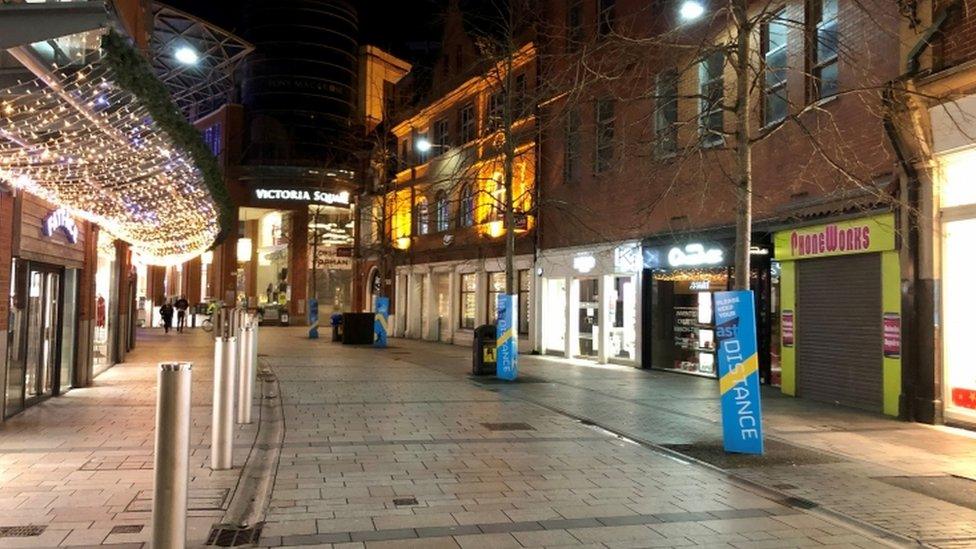
The head of Hospitality Ulster has said he would prefer a full lockdown over partial restrictions
Health officials have proposed a six-week lockdown across NI in a bid to curb the spread of the virus, BBC News NI understands.
It is believed a review of the measures would take place after four weeks.
Executive ministers are meeting to discuss the plan, brought by Health Minister Robin Swann.
It proposes the closure of non-essential retail after Christmas Eve, and hospitality only allowed to offer takeaway services.
Close contact services including hairdresser and beauty salons would also have to shut again.
It is also understood health officials have proposed essential shops in NI would have to close by 20:00 GMT every night during the first week of a new lockdown.
It is believed there could be changes to what is classed as essential retail, and the potential that click-and-collect services would not be permitted.
The first week of a fresh lockdown could also see tighter rules on indoor and outdoor gatherings and a ban on people meeting others in private gardens.
Health officials have also proposed measures to limit the reopening of schools in January and it's understood a package of interventions will be drawn up by the education and health departments.
However any new lockdown restrictions will have to be signed off by the whole executive, which is meeting now to consider Mr Swann's paper.
On Thursday, a further 12 Covid-linked deaths were recorded in NI and a further 656 cases of the virus.
Hospitality Ulster said a full lockdown may now be required.
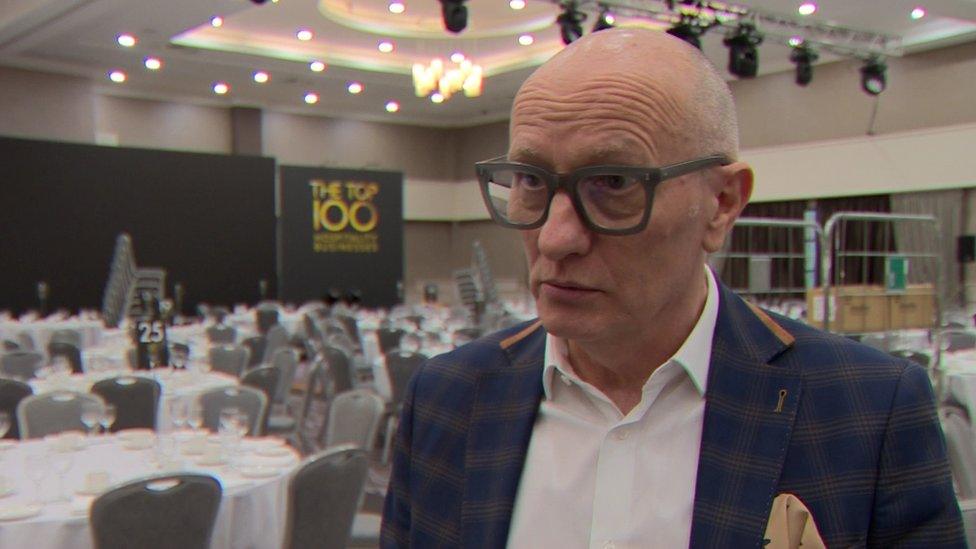
Colin Neill says the board of Hospitality Ulster is aware of the situation at hospitals
Chief executive Colin Neill said his board would support a full lockdown to get the virus under control.
Mr Neill accepted a lockdown would have a big impact on the hospitality sector but added "what is worse is opening and closing all the time".
"Every time you have to reopen costs a lot of money and every time you have to close costs a lot of money because of wastage," he told BBC's Stephen Nolan Show.
"If we are going for lockdown, then we will support a total lockdown until we get this thing under control," he said.
"I think we can all see the situation at our hospitals," he said. "We need to go back to what we did in March and April."
Mr Neill said many within the hospitality sector only remained open so they could earn enough to pay their contribution towards furlough and retain their staff.
New restrictions
The new proposals before the executive come amid warnings from health officials that the system is struggling with winter pressures exacerbated by the pandemic.
Ministers will have to decide the date of when any new measures would take effect, how long they would last and how strict they would be.
They will also assess the latest data from the chief medical officer and chief scientific adviser regarding the R-number in NI, which measures the infection rate of the virus.
The executive has expressed concerns that the spread of the virus has not reduced following a two-week limited lockdown, and that cases could spike further after the Christmas holidays unless more interventions are introduced.
The lockdown, which ended last Friday, saw non-essential retail, close contact services and hospitality largely have to shut - but Chief Scientific Adviser Prof Ian Young said evidence showed not enough people had followed the "stay at home" guidance.
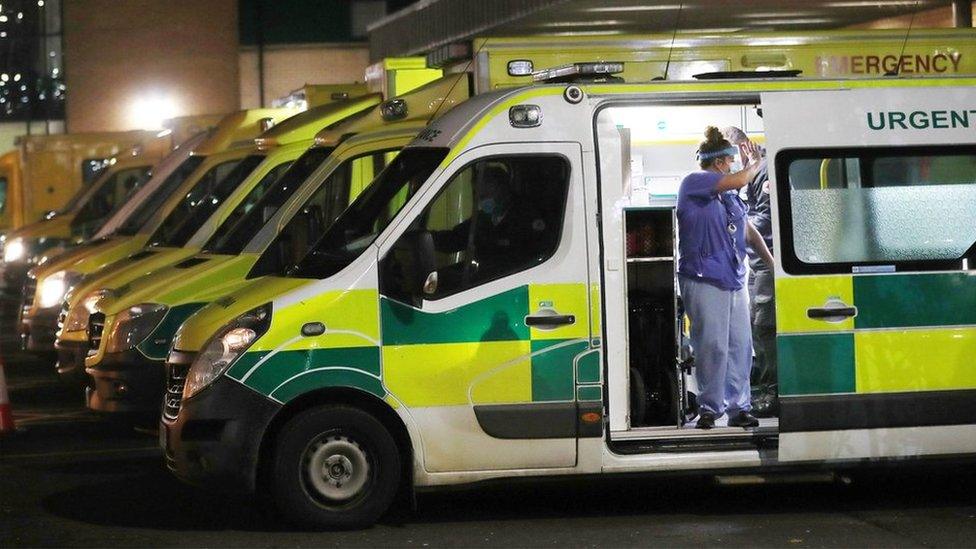
There were queues of ambulances outside Antrim Area Hospital on Tuesday night, with hospitals in Northern Ireland continuing to face severe pressures
Ministers are also expected to discuss a decision by England, Northern Ireland, Scotland and Wales to strengthen guidance about how people can meet up with families over Christmas.
On Wednesday, London and the devolved governments agreed to keep in place a plan to allow households to form "Christmas bubbles" from 23 to 27 December.
The first and deputy first ministers said they wanted to ensure people in Northern Ireland were not isolated over Christmas, but stressed that "personal responsibility" should be a priority for anyone planning to have contact with others.
Economy Minister Diane Dodds said she would also bring more details of her new support scheme for pubs that do not serve food, which have been forced to remain closed, to Thursday's executive meeting.
It has yet to open, but last month the executive allocated £10.6m in funding to the sector.


It was always a case of when, not if, new restrictions would be imposed following the brief reprieve over Christmas.
Mr Swann's use of the word "extreme" has some Stormont sources believing that we could be looking at a lockdown similar to that initially imposed back in March.
It could even be tougher in some respects, with ministers aware a hard, long period of measures is needed in order to get transmission rates down.
Expectations and anxieties have been raised yet again.
Some businesses - having just reopened last week - will express frustration that they could lose out on important post-Christmas sales if they are told to shut again before New Year's Eve, particularly if extra financial support from Stormont isn't put in place.
But the biggest issue ministers have to address is the lack of compliance, and there is a growing fear around the executive table that not enough people are heeding the message any more.

Why are more restrictions being considered?
Cases of the virus in Northern Ireland have not significantly reduced, despite several periods of restrictions since October.
On Wednesday, eight deaths linked to Covid-19 were recorded in Northern Ireland, taking the Department of Health's total to 1,143.
There were 510 more positive tests recorded, meaning there have been 59,631 cases overall.
Health officials have urged the politicians to act quickly, in light of hospitals facing significant pressures that could increase as NI moves further into the winter flu season.
Related topics
- Published16 December 2020
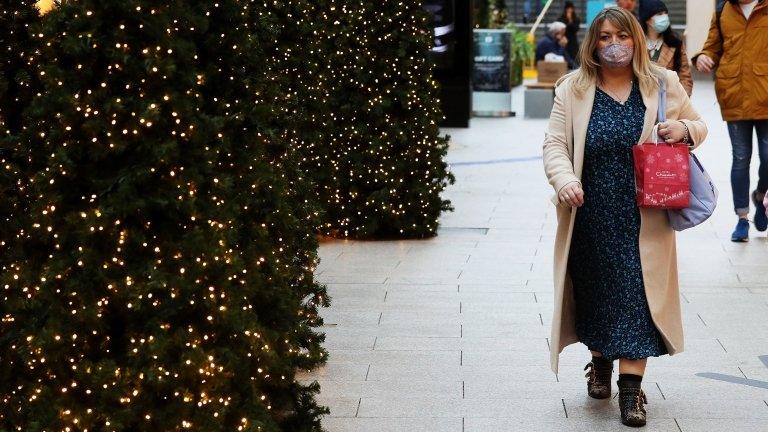
- Published16 December 2020
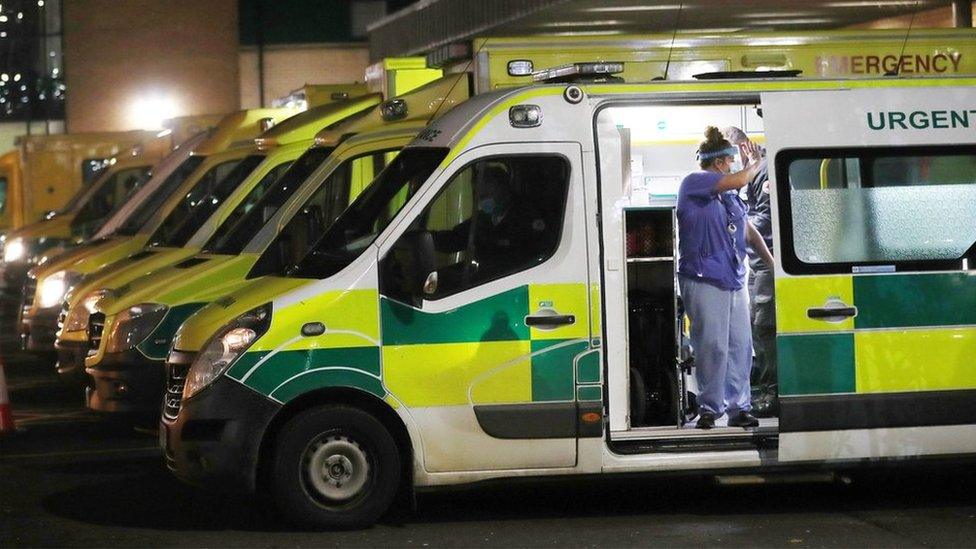
- Published16 December 2020
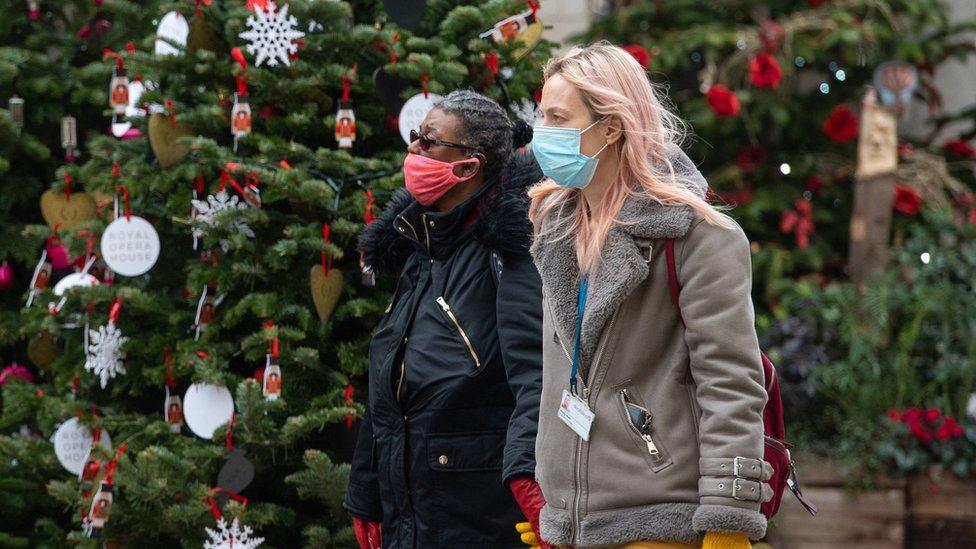
- Published25 November 2020
